Early Detection Speeds the Public Health Response
The names are likely familiar to you: Alpha, Beta, Delta, Gamma, and Omicron. But rapidly identifying the what, when, and where these and other viral variants of SARS-CoV-2 emerge is critical to help speed the public health response.
Whole genome sequencing is an option for surveillance of the virus; however, it is still in its infancy as a diagnostic or epidemiological tool due to geographic inequities in sequencing capabilities, higher cost compared to other molecular assays, and longer turnaround time from sample to result. There are technical challenges associated with producing complete genome sequences from samples that have low viral load and/or high background. Additionally, staff with technical expertise in sequencing workflows may not be in high abundance in many geographic regions. Due to these constraints, patient sample or community sample sequencing for SARS-CoV-2 may be impractical.
A faster, less expensive, and fieldable substitute is necessary—making multiplexed genotyping RT-qPCR assays cost-effective and equitable alternatives. While this type of testing is traditionally done through the use of a patient-obtained sample, another way to rapidly understand whether SARS-CoV-2 is present in a community is through the testing of wastewater. Data from wastewater testing can serve as an early warning sign and provide critical information about the prevalence of the virus in a community. Our work developing assays for this purpose is helping to meet this need.
What Is a Viral Variant?
A variant is a viral genome (genetic code) that may contain one or more mutations. In some cases, a lineage or group of lineages with similar genetic changes may be designated by the World Health Organization (WHO) or the U.S. SARS-CoV-2 Interagency Group (SIG) as a Variant of Interest (VOI), Variant of Concern (VOC), Variant of High Consequence (VOHC), or Variant Being Monitored (VBM) due to shared attributes and characteristics that may require public health action. These classifications serve as an important tool in communicating about variants that may have concerning properties or may impact susceptible populations.
Developing Rapid Genotyping Assays
Unfortunately, many SARS-CoV-2 variants that emerged during the COVID-19 pandemic acquired mutations conferring phenotypes such as increased transmissibility or virulence, or causing diagnostic, therapeutic, or immune escape. Each presented a significant challenge in the management of the COVID-19 pandemic.
To rapidly generate information on the presence of a variant in a given sample, we have created a panel of four triplex RT-qPCR assays targeting 12 mutations to detect and differentiate all five variants of concern: Alpha, Beta, Gamma, Delta, and Omicron. Additionally, we have developed an expanded pentaplex assay that can reliably distinguish among the major sublineages of Omicron (BA.1–BA.5). The assays for clinical sample differentiation were validated using 84 blinded clinical samples of known lineage provided by the National Institutes of Health RADx® program and the Naval Health Research Center. These panels can help fulfill the need for rapid identification of variants in samples, leading to quick decision-making with respect to public health measures, as well as treatment options for individuals. Compared to sequencing, these genotyping PCR assays allow much faster turnaround time from sample to results—just a couple hours instead of days or weeks.
The Importance of Wastewater Testing
People infected with SARS-CoV-2 can shed viral RNA (genetic material from the virus) in their feces, even if they don’t present symptoms. This RNA can then be detected through community wastewater testing, which can include water from household or building use (such as toilets, showers, and sinks) that can contain human fecal waste, as well as water from non-household sources (such as rain and industrial use).
Testing these sources can enable wastewater surveillance to capture the presence of SARS-CoV-2 shed by people in the community, serving as an early warning that COVID-19 is spreading in that community. Once health departments are aware, communities can act quickly to prevent the spread of COVID-19. Data from wastewater testing supports public health mitigation strategies by providing additional crucial information about the prevalence of COVID-19 in a community.
Data from wastewater testing is meant to complement existing COVID-19 surveillance systems by providing:
- An efficient community sample
- Data for communities where timely COVID-19 clinical testing is underused or unavailable
- Data for different communities within a county
Testing of Clinical and Wastewater Samples on a Portable PCR Platform
To help support this effort, we have developed assays to test wastewater samples. The publicly available genomes of SARS-CoV-2 VOI were compared against the Wuhan-Hu-1 isolate to determine possible regions of detection and differentiation by BioMeme Inc. Applicable regions were then chosen as targets for the genotyping PCR assays and further tested in-silico to verify compatibility in a multiplex format. In total, this resulted in four triplex assays for clinical genotyping, three triplex assays for SARS-CoV-2 wastewater detection, and one pentaplex assay that further distinguished omicron variant subtypes for clinical samples. MRIGlobal performed the validation of these assays on standard PCR instrumentation, as well as on the BioMeme Franklin™ portable PCR device. Assays that were developed with the intent for wastewater detection specifically targeted regions that indicate possible immune-escape phenotypes, rather than simply identification of the variant, as this information would be more pertinent for an epidemiological context.
Preliminary results for SARS-CoV-2 wastewater panels suggest that they can serve as an important surveillance tool to monitor the spread of SARS-CoV-2 variants in the community, as they have comparable limits of detection to current identification assays and have the additional benefit of being compatible on a portable PCR device (BioMeme Franklin™). These PCR assays offer a turnaround time of just a few hours, compared to days or weeks required for whole genome sequencing. The rapid identification of SARS-CoV-2 variants in various sample types using these panels can lead to more detailed genomic epidemiology of SARS-CoV-2, enabling rapid identification of variants in wastewater. This speed of testing aids decision-making for timely public health measures and treatment options, particularly in regions with limited sequencing capabilities.
Assay Testing for SARS-CoV-2 Expands to Include Sexual Health and Virology Testing
Since 2020, researchers in our CAP/CLIA laboratory have performed diagnostic testing, which led to an expansion to include clinical reference testing capability. By providing world-class test systems, we provide our customers with unique capabilities to leverage during their clinical trials. In addition, availability of these test systems enables expansion of our capabilities beyond respiratory testing into sexual health and virology with much lower capital expenditure. Read more in our “Assay Testing in Our CAP/CLIA Laboratory” blog.
Testing Assay Performance Under Less-Than-Optimal Conditions
As part of an application for 510(k) approval, the U.S. Food and Drug Administration (FDA) requires assay developers to provide data on how their assay performs under a variety of less-than-optimal conditions. These tests are called flex studies and are generally standardized for all similar device submissions. For instance, will the assay still work after being exposed to high heat and humidity? Or after being dropped on the floor? Or if it is used and then sits exposed for two hours? Each of these conditions is relatively easy to recreate in a laboratory setting and then provides the customer with the necessary data to submit in their application. But when a customer has “higher” demands, our team is always ready for the challenge. Read more about how our team provided a solution for testing assays at elevation in our blog “Testing a SARS-CoV-2 Assay at 20,000 Feet.”
GETTING STARTED AT MRIGLOBAL
Contact MRIGlobal to further understand our work in infectious diseases. We offer a broad portfolio of infectious disease tests and capabilities across diagnostic disciplines, from screening and diagnosis to genotyping, therapy, and monitoring. Those seeking analysis of infectious disease tests can trust in our breadth of experience and knowledge – not just on the subject matter, but on FDA protocols as well.
To learn more about the work we’ve done or how we can help you, contact us today. If you are part of an agency, business, or academic institution seeking assistance with a project, use our Project Quote Tool to get started.
SIGN UP FOR OUR NEWSLETTER
Sign up for the MRIGlobal newsletter! It’s the best way to get the latest updates in the world of applied scientific engineering research delivered directly to your inbox.

